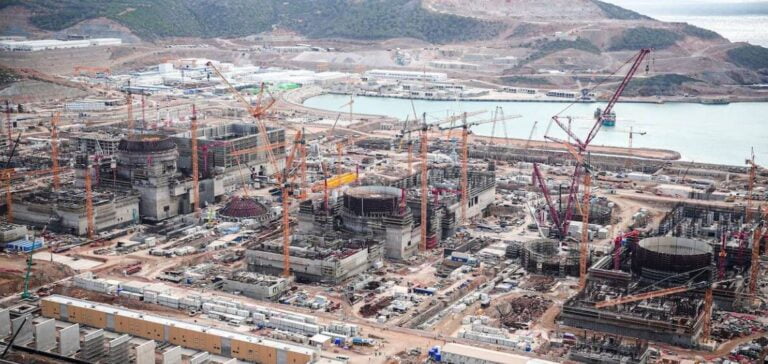The Akkuyu project, located in Turkey’ s Mersin province, represents a decisive step towards the country’s energy autonomy. The result of a 2010 intergovernmental agreement between Russia and Turkey. This project is led by Rosatom, which is adopting an innovative business model: build, own and operate (BOO). With four VVER-1200 reactors, the plant aims to cover around 10% of Turkey’s electricity needs by 2028. This project, which marks the emergence of Turkey’s first nuclear power plant, positions the country as a new powerhouse in nuclear technology .
Unique construction challenges
The construction of the power plant brings engineering challenges to the fore. The nine roof sections, each weighing between 95 and 175 tonnes and measuring 61 metres in length, were installed using a Liebherr 13000 crane. Each section required an installation precision of 10 millimeters. A remarkable feat given the difficult weather conditions and tight schedule.
Successes and next steps
Sergei Butskikh, First Deputy Director of Akkuyu Nuclear JSC, stresses the importance of flawless execution in this phase. With the completion of this stage, the team is preparing to install the main components of the turbogenerator. Commissioning of the first reactor is scheduled for 2025, marking the start of nuclear power supplies to the Turkish grid.
The Akkuyu project is more than just a technical achievement, it reflects a strategic vision for Turkey’s energy future. Navigating through technical and political challenges, this project symbolizes a major turning point for the country’s energy independence and sustainability.






















